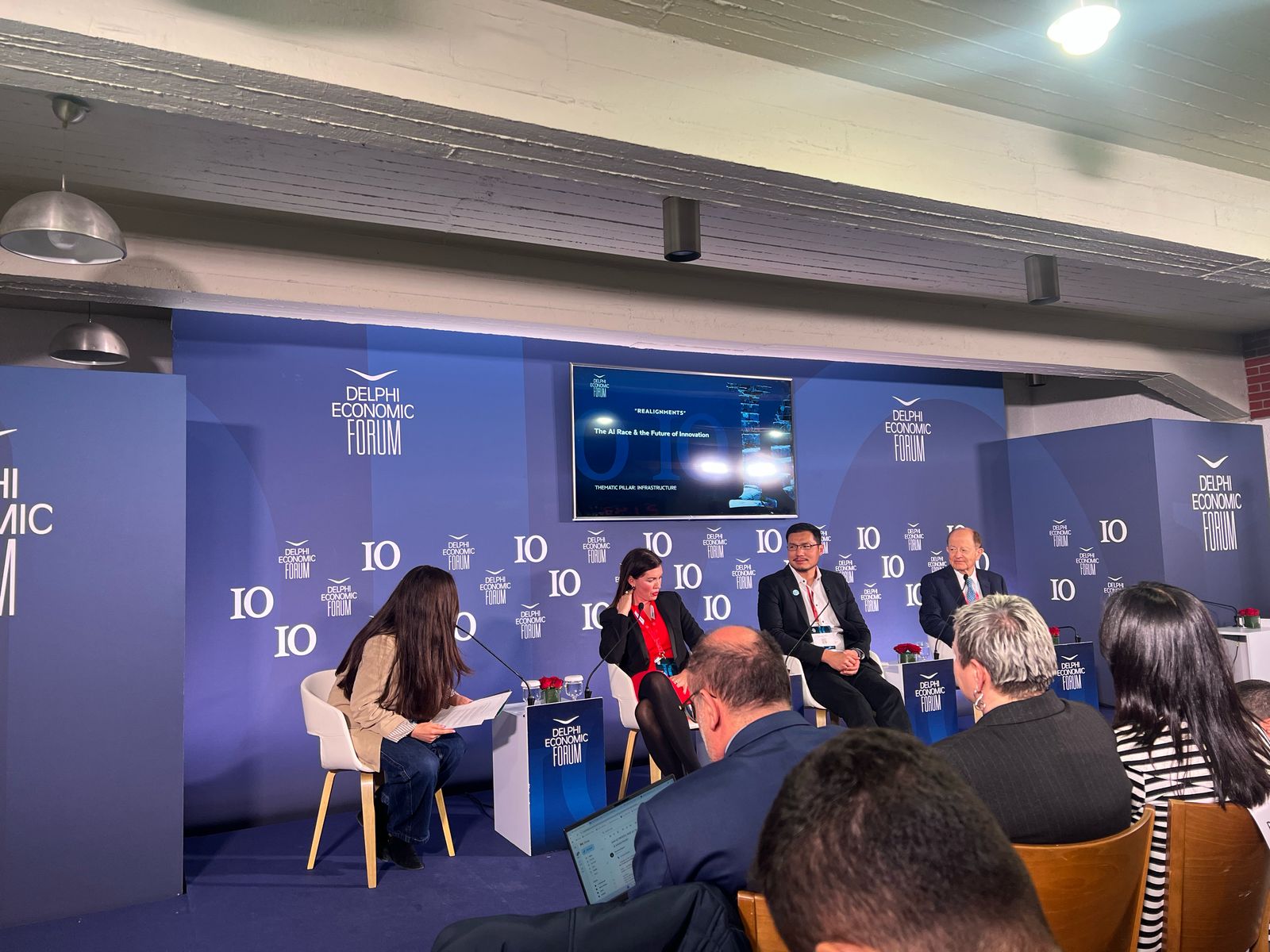BLOG
The AI Race: Why Uniquely Human Skills Will Be Needed More Than Ever | Delphi Economic Forum X
By Endeavor Greece
May 14, 2025

What skills are needed both to accelerate the advance of AI and ensure it produces widely shared benefits? The first answer many people give when considering this question would likely focus on tech skills.
And when a panel convened by the Delphi Economic Forum 2025 and chaired by Endeavor Greece’s Angeliki Pittarokoili discussed just this question a few weeks back, panelist C. L. Max Nikias, President Emeritus & Professor at the University of Southern California, made it clear the world definitely does need more engineers to power the AI revolution.
“What is the biggest threat the AI revolution is facing?” “The biggest threat is not China and it's not anything else. It's a shortage of talent,” he declared. “It's a new revolution that requires very well educated people to drive it in the areas of engineering, applied physics, and computer science. We need more students to get university degrees in these disciplines.”
But by the close of the discussion the biggest takeaway from the panel wasn’t a need for more technologists to drive AI forward. It was a need to develop more uniquely human and less often discussed skills to ensure the AI revolution serves humanity and improves all our lives.
AI will make EQ more valuable, not less.
Charlotte Foucteau, CEO of Teleperformance (TP) Greece, brought a business perspective to the conversation. When asked how her firm was preparing its 12,000 employees for an AI-filled future, the first skills she discussed weren’t around digital literacy, though the company makes sure people have the tech skills they need to succeed.
“I'm going to maybe surprise you, but the first thing that we do is training on emotional intelligence,” she reported.
AI will have a big impact on the customer experience industry, according to Foucteau. But it won’t eliminate the need for a more human touch. In fact, she predicts, it will make EQ even more valuable.
“In a world where you have so many options, what’s going to be the differentiator are those human skills. The difference is not going to be about the technology anymore. The real value is going to come from the emotional intelligence that we can bring into our companies. At TP, we have found the best mix is AI with EI, meaning emotional intelligence. When you manage to have both, then the magic happens.”
Wanted: farsighted leadership
Not only will the AI revolution demand more people with highly developed emotional intelligence. It will also demand savvy political thinkers, according to the third panelist, Alvin Wang Graylin, Global VP at HTC, Chairman of Virtual World Society and Vice-Chair, Industry, VR Alliance.
Having spent half his career in China and half in the United States, Graylin is acutely worried about the current narrative of great power competition around AI.
“Even to call this an AI race is positioning the world to go down a path where we are making an increasingly dangerous world,” Graylin argued. “We are potentially creating a technology that advances all areas of our lives and can take us from a world of scarcity to potentially a world of abundance. But we are now turning it into a weapon against each other.”
National leaders should be most worried about AI technology getting into the hands of rogue actors and collaborating and sharing intelligence to minimize this threat, Graylin feels. Instead, they are trying to ensure their AI capabilities are ahead of those of other countries. That’s inefficient as countries are duplicating each other’s work rather than sharing and building on it. It’s also building our national rivalries and biases into our various AIs.
“There is no winning this race,” Graylin insisted.
Add to this the looming possibility of AI soon displacing much of the labor force, and you have an acute need for inspired political leadership.
“We need to be thinking about how we put in systems to prevent an economic meltdown and a societal meltdown,” Graylin said. “We need to be creating a ‘CERN for AI’ type program versus national sovereign programs… When we put the data of all the world nations together, all the religions, all the peoples, all the languages, we then create an AI that takes everybody's perspective into account.”
“Hopefully the leaders in the world realize that there is no winning and the only way to win is not to play this kind of war games movie from the 1980s,” he concluded.
The skills need to build a better future
Does the AI revolution demand brilliant minds in science, engineering and technology? Of course. But as a whole the panel made clear that fast-advancing AI also makes quintessentially human skills like emotional intelligence, ethical insight, and inspired leadership vastly more important and more valuable.
If we want artificial intelligence to usher in a brighter future for all of us, we’ll need to nurture and build more of these skills too.
People Involved :

Angeliki Pittarokoili